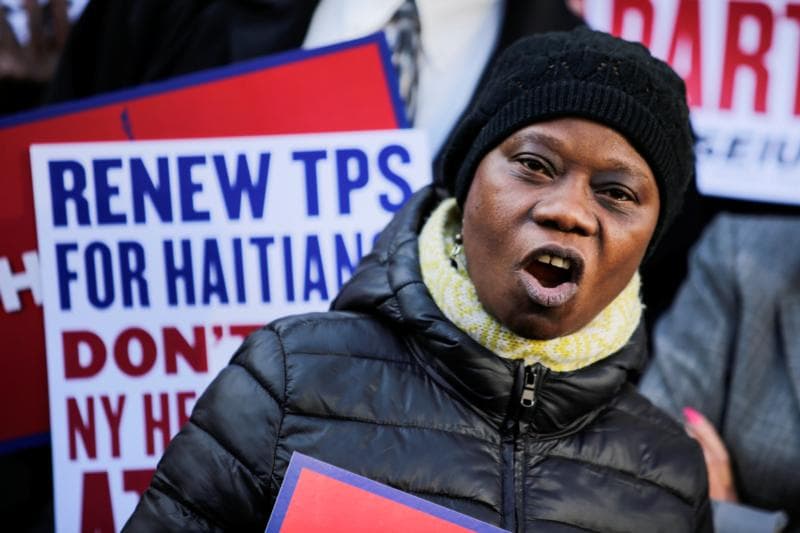WORCESTER, Massachusetts — This Thanksgiving, many Haitians felt something besides gratitude and joy, says a Catholic sister who ministers to their community.
They felt fear, said Sister Marie-Judith Dupuy, a Sister of St. Anne who directs the Worcester Diocese’s Haitian Apostolate.
The reason, she said, was the Trump administration’s announcement that it is ending a temporary residency permit program that has allowed nearly 60,000 citizens from Haiti to live and work in the United States since an earthquake devastated the Caribbean nation in 2010.
The Department of Homeland Security has granted a final 18-month extension of the Temporary Protected Status program, giving Haitians living here under the visas a year and a half to prepare to return home.
The trouble is, many have no homes to which to return, said Dupuy, 58, herself originally from the Haitian capital city of Port-au-Prince.
“They are so afraid,” she said. “Is it fair for our Haitian people to be treated like this? For the Thanksgiving meal, they were at the table with all their family so afraid. Afraid of what? Of the injustice being done to them.”
Dupuy spoke after the 12:30 p.m. French-language Mass last Sunday at St. Joseph’s Church, a church that is attended largely by Haitian Catholics.
“They are good people, faithful people, willing to continue to adore their Lord the way we used to back home,” Dupuy said.
A number of Haitians affected by the TPS cancellation were at Mass, she said, but wouldn’t wish to speak publicly about their status. “(They) don’t want to talk, because of fears,” she said.
Dupuy spoke of one family that came to Worcester after the 2010 earthquake. The mother had died in the quake, crushed under a falling wall when their house crumbled. A daughter was a bank director in Haiti. “She has to accept the lowest job in America to be able to serve her family,” Dupuy said. “For them to be able to pay their rent to live in America, they accept all kinds of jobs to be able to survive with their family.
“My request is to have a permanent solution so those people can finally live free in this country,” she said.
“This is their homeland. They have no more home to go to. They left their mom under the rubble. Where would they go to? No place to go to.”
Not only Haitians are losing temporary protected status. Nicaraguans, Hondurans and Salvadorans also either have had residency permits terminated or are expected to have their status terminated in the coming months, said Father Andres Araque, who serves Latino parishioners at St. Peter’s and St. Stephen’s churches in Worcester.
Hundreds of people living legally in Worcester with visas issued on humanitarian grounds thus face the loss of their residency permits, said Araque, 33, originally from Colombia.
Sunday’s French-language Mass at St. Joseph’s was celebrated by a Haitian priest, Father Jean Robert Simbert Brice, 40, a member of the religious order the Clerics of St. Viator in Montreal, who is studying English at Worcester State University.
In his sermon, Simbert Brice encouraged Haitian parishioners to take heart and keep the faith.
“Do not be worried,” he told them in French. “Even though the U.S. government gives us 18 months to be sent back home, it must be that God is telling us we have 18 months to prepare for permanent residence, so we must work for it.”















